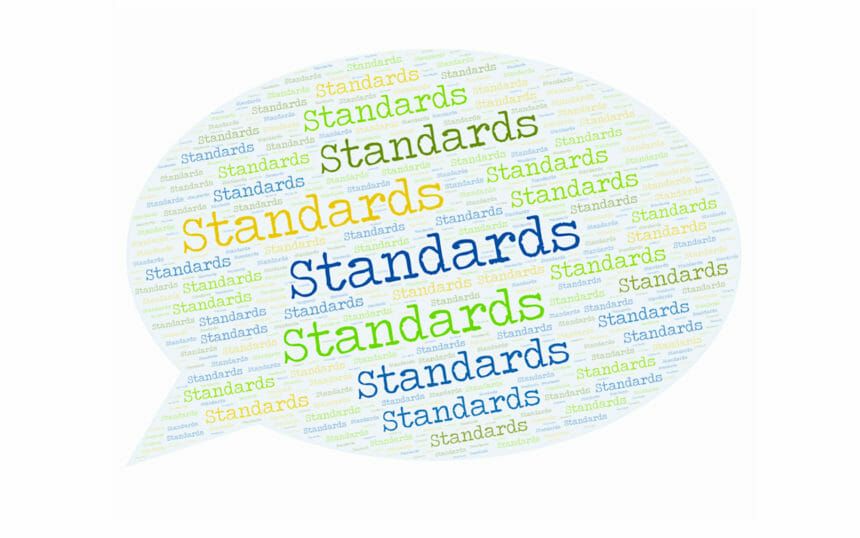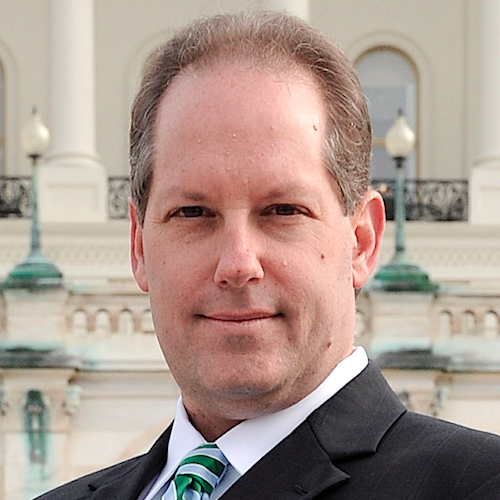
Would industry-initiated national standards hasten or delay the federal regulation of senior living? Would they encourage or prevent lawsuits against operators?
Major associations representing senior living providers disagree on the answers to those questions. On one side is Argentum, which applied to the American National Standards Institute in April to become an accredited developer of standards for the industry. On the other side are the National Center for Assisted Living, LeadingAge and the American Seniors Housing Association, all of which appealed ANSI’s September approval of Argentum’s application. Argentum has until Jan. 10 to respond to those organizations comments, and ANSI will hold a hearing in February to make a final determination on its original decision.
Argentum first publicly announced efforts to develop best practices in 2014, unveiling 12 community standards in late 2015 as part of a pilot project, Argentum Vice President of Quality Improvement John Schulte told McKnight’s Senior Living. The program began before his tenure with the organization.

John Schulte
“Argentum members and others had the opportunity to evaluate those standards and determine whether or not they would want to follow those standards,” Schulte said, adding that representatives of more than 2,000 communities told Argentum they were meeting the standards. (See a list of that organizations that attested in 2016 here.)
Whereas the group’s original standards were broad, he said, the new standards Argentum plans to develop would address specific areas such as elder abuse and medication management.
“My expectation is the vast majority of the industry is already going to be in compliance with what we’re doing,” Schulte said. “By establishing the best practices — the standards we’re talking about — we’re really just looking for those outliers to step up their game and get in step with what’s normal and customary for the industry.”
Taking charge or inviting federal regulation?
The existence of ANSI standards that are applicable nationwide “absolutely” would be intended to prevent federal regulation of senior living, which Argentum defines as independent living, assisted living, memory care and continuing care retirement communities, he said.
“Industries have to make a decision. Do you want to pursue self-regulation, or do you want to just wait to get further regulated and wait for regulators?” Schulte said.

Mark Parkinson
American Health Care Association / National Center for Assisted Living President and CEO Mark Parkinson, however, said the view that standards will preclude federal regulation is “a misunderstanding of what actually occurs on the Hill.”
“In the event that the dynamics existed such that federal regulation became possible, frankly, it’s naive to think that we could go up to the Hill and say, ‘You don’t need to regulate us because we’ve already regulated ourselves,’ ” he said.
Argentum’s plans to develop ANSI standards is “dangerous” and would be “a plaintiff’s lawyer’s trap,” Parkinson said.
When NCAL sought legal input on the liability implications of standards developed by “private actors,” the organization was advised that such standards put providers — even those that have not agreed to abide by the standards — at risk of being sued, and that the organization developing the standards risks exposure as well. Parkinson cited the case of a trade association representing the swimming pool industry that filed for bankruptcy after being deemed negligent in children’s injuries because it had promulgated voluntary safety standards for manufacturers. The association was ordered to pay $6 million to a plaintiff in one case.
“Argentum is on the verge of making a very bad decision that will negatively impact every assisted living provider in the country, because there is a very clear line of case law that demonstrates that once the ANSI standards are developed, they become the standard of care for purposes of tort litigation and really become a gift to the plaintiff’s bar that we think unnecessarily will increase lawsuits at a time when we just don’t need that to occur,” he said.
Parkinson encouraged Argentum and its members, many of whom also are NCAL members, “to take a step back, take a look at this case law and really keep from making what we think could be a very bad mistake.”
Argentum, Schulte said, has heard from “a small number of our members” who have litigation-related concerns, but the organization feels confident about the path forward.
“Before we started on this initiative, and before we applied for ANSI, we had talked to some of the insurers in the industry, we had talked to some of the legal counsel for some of our members,” he said. “At the end of the day, I guess that [litigation] is possible. It really I think comes down to the standards themselves. And so our approach to developing standards accounts for minimizing those types of risks.”
Consensus appears lacking
Beyond concerns about legal and regulatory risks, the apparent lack of consensus on industry standards is a central issue for the associations that are appealing ANSI’s approval of Argentum’s application.

“The Argentum application to become an ANSI Standards Development Organization was completed without input and collaboration from any other organizations representing the senior living industry,” the American Seniors Housing Association said in a statement to McKnight’s Senior Living. “ASHA surveyed its members concerning the development of ANSI standards. The responses (many of which were from ASHA members who are also Argentum members) indicated an overwhelming objection to the development of ANSI standards.”
That lack of support by industry stakeholders is at the core of ASHA’s objection, according to the organization. “It is evident that the industry is not in favor of the development of ANSI consensus standards,” ASHA’s statement said. “Furthermore, there is no reason to believe that ANSI’s due process system will achieve consensus in standards development with Argentum as the Standards Developer.”
NCAL’s Parkinson echoed ASHA’s remarks about consensus.
“Our appeal really focused on the fact that there is not broad consensus within the profession to do this. In fact, there’s actually broad consensus in the profession to not do this, with one exception being Argentum, which thinks that it’s a good idea,” he said. “So we’ve really tried to make the point to the ANSI organization that the broad consensus that should be there before this sort of thing takes place is simply not there.”
Just as ASHA does, NCAL also has members that also are Argentum members. Approximately one-third of NCAL’s members also belong to Argentum, Parkinson estimated.
“In the nine years that I have been here, I have never criticized any association for any action that it has taken. It’s simply not my place to do it,” he said, adding: “What any of these other associations want to do, and what their members want to do, is up to them. Unfortunately, this decision by Argentum does not just impact the Argentum members. It affects every single assisted living provider in the country, whether they’re a member or not, including NCAL members. And once an organization starts making a decision that will negatively impact NCAL members, we’re definitely going to get involved.”
ANSI is a private, not-for-profit organization with a stated mission “to enhance both the global competitiveness of U.S. business and the U.S. quality of life by promoting and facilitating voluntary consensus standards and conformity assessment systems, and safeguarding their integrity.”

Katie Smith Sloan
ANSI’s process, however, “is not a consensus-based approach,” LeadingAge President and CEO Katie Smith Sloan told McKnight’s Senior Living. “Based on our significant experience in other areas of standards creation in aging services, we know that standards that are not fully consensus-driven will be met with skepticism from providers, as well as consumers, legislators and regulators. We look forward to working with a diverse and comprehensive group of stakeholders to forge a fresh approach.”
LeadingAge supports efforts to improve quality and is not opposed to voluntary standards for assisted living and memory care as long as they are developed “with full stakeholder engagement and in a transparent manner,” she said.
“Any development of standards must include all stakeholders, from provider groups and consumers to researchers, clinicians and policymakers, at the outset,” Sloan said.
The importance of quality
Despite their differing opinions regarding the wisdom of standards, one point all of the associations agree on is the importance of quality in senior living. How to ensure it is the sticking point.
“ASHA fully supports quality initiatives for senior living but believes there are a number of other alternatives to ANSI standards that can achieve the desired results,” the organization said in its statement.
Parkinson also believes that other efforts “can achieve the same end without all the risk that’s connected with the standard-setting process.”
“We have had attorneys look at all of the different options that are out there for us to improve quality without at the same time exposing our members to litigation,” he said. “And the two things that they have said are fine, and they’ve been right about it, are the Quality Initiative and, more importantly, the Quality Award program, that even though people go through a pretty arduous process for the Quality Award program, the decision to not do that does not expose somebody to litigation.”
AHCA / NCAL’s three-level Quality Awards program recognizes organizations nationally that are deemed to be models of excellence in providing high-quality care and services. This year, two assisted living communities reached the highest level, Gold, whereas 44 earned Silver awards and 99 earned Bronze.
The program has been in place for more than 15 years, Parkinson noted. “There have never been any lawsuits that have stemmed out of it,” he said.
What’s next
If ANSI doesn’t overturn its original decision, Argentum plans to proceed, Schulte said.
“Developing standards is a long process. Building consensus is a long process,” he said, adding that the process probably would begin by the end of the first quarter.
“We’ve done some preliminary work, but what we have to do is have a draft that goes out for review and comment by anybody who’s affected in the industry who wants to weigh in,” Schulte added. “So that process could easily take 18 months, maybe longer.”
He encouraged anyone with questions or concerns about the standards process to contact him.



